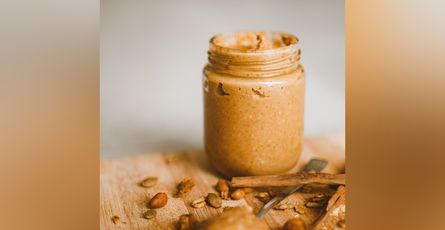Are Fruit Smoothies Really Healthy? A Nutritional Analysis
-
 Sofia Cruz
Sofia Cruz
- 3 May 2023

Fruit smoothies have become a popular choice for a quick and convenient breakfast or snack option. They are marketed as a healthy alternative to sugary drinks and snacks, but are they really as healthy as they seem? While fruit smoothies can be a good source of vitamins, minerals, and fiber, they can also be high in calories and sugar.
One of the main benefits of fruit smoothies is that they can be a quick and easy way to consume a variety of fruits and vegetables. However, it’s important to be mindful of the ingredients used in the smoothie. Some smoothies can contain high amounts of added sugars, such as honey, syrups, or sweetened yogurts, which can contribute to weight gain and other health problems.
Additionally, the way the smoothie is prepared can also impact its overall healthiness. Blending the fruits and vegetables can break down the fiber, which can cause the sugar to be absorbed more quickly into the bloodstream. This can lead to a spike in blood sugar levels and subsequent crash, leaving you feeling tired and hungry shortly after consuming the smoothie.
Nutritional Benefits of Fruit Smoothies
Fruit smoothies are a convenient and delicious way to add more fruits and vegetables to your diet. They are packed with essential nutrients and vitamins that can help improve your overall health. Here are some of the nutritional benefits of fruit smoothies.
- Vitamins and Minerals: Fruits are rich in vitamins and minerals that are essential for maintaining good health. Smoothies made with fruits like bananas, strawberries, and blueberries are high in vitamin C, potassium, and other important nutrients.
- Fiber: Fruits are also a good source of dietary fiber, which can help improve digestion and reduce the risk of chronic diseases like heart disease and diabetes. Smoothies made with whole fruits and vegetables are a great way to increase your fiber intake.
- Antioxidants: Fruits and vegetables are rich in antioxidants, which can help protect your body against damage from free radicals. Smoothies made with berries, spinach, and other antioxidant-rich ingredients can help boost your immune system and reduce inflammation.
One of the great things about fruit smoothies is that they are highly customizable. You can experiment with different fruits and vegetables to create a smoothie that meets your nutritional needs and tastes great. Adding a scoop of protein powder, nut butter, or Greek yogurt can also help increase the protein content of your smoothie, making it a more satisfying and filling meal.
However, it’s important to be mindful of the sugar content of your smoothie. Some smoothies can be high in added sugars, which can contribute to weight gain and other health problems. To keep your smoothie healthy, try to use whole fruits and limit the amount of sweeteners like honey or agave that you add.
Potential Health Concerns
While fruit smoothies can be a convenient and tasty way to consume fruits and vegetables, there are some potential health concerns to keep in mind.
- Sugar Content: Many smoothies contain high levels of added sugars, which can be detrimental to health. Consuming too much added sugar has been linked to an increased risk of obesity, type 2 diabetes, and heart disease.
- Caloric Intake: Smoothies can be high in calories, particularly if they contain large amounts of calorie-dense ingredients like nuts, seeds, and nut butters. This can be problematic for individuals trying to manage their weight or reduce their caloric intake.
- Nutrient Imbalance: While smoothies can be a good source of vitamins and minerals, they can also be imbalanced in terms of macronutrients. For example, if a smoothie contains large amounts of fruit and little protein or fat, it may cause blood sugar spikes and crashes, leading to feelings of hunger and fatigue.
- Digestive Issues: Smoothies that contain large amounts of fiber can be difficult to digest for some individuals, particularly those with digestive issues like irritable bowel syndrome (IBS).
It’s important to note that not all smoothies are created equal. By making your own smoothies at home and using whole, nutrient-dense ingredients, you can avoid many of these potential health concerns. Additionally, it’s important to be mindful of portion sizes and to consume smoothies in moderation as part of a balanced diet.
Tips for Making Healthy Fruit Smoothies
Smoothies can be a great way to get in your daily dose of fruits and vegetables, but they can also be loaded with added sugars and calories. Here are some tips for making healthy fruit smoothies:
- Use mostly whole fruit: Instead of using fruit juice, which is a concentrated source of calories and added sugars, use whole fruits like bananas, berries, and mangoes.
- Include protein: Adding sources of protein like Greek yogurt, nut butter, or protein powder can help keep you full and satisfied.
- Don’t forget about healthy fats: Adding sources of healthy fats like avocado or chia seeds can help with nutrient absorption and provide additional health benefits.
- Use unsweetened milk alternatives: Instead of using dairy milk, try unsweetened almond milk or coconut milk to cut down on added sugars.
- Rinse all your fresh produce: Even if you’re using organic produce, it’s important to rinse it before using to remove any dirt or bacteria.
- Don’t be afraid of vegetables: Adding leafy greens like spinach or kale can provide additional nutrients without adding too many calories.
- Use plenty of ice: Adding ice can help make your smoothie thicker and more satisfying, without adding extra calories.
By following these tips, you can create a healthy and delicious fruit smoothie that’s packed with nutrients and won’t sabotage your healthy eating goals.
Conclusion
Smoothies have become a popular way to consume fruits and vegetables in a convenient and tasty way. Many studies have shown that consuming smoothies can have numerous health benefits, including increased nutrient intake and weight loss.
However, it is important to be mindful of the ingredients added to smoothies, as some can be high in sugar and calories. Adding too much fruit juice, sweeteners, or high-fat ingredients like peanut butter or cream can negate the health benefits of the smoothie.
It is recommended to make smoothies with a variety of fruits and vegetables, and to use water or unsweetened milk as the base. Adding in healthy fats like avocado or nuts can also provide additional health benefits.
Ultimately, smoothies can be a healthy addition to one’s diet when made with whole, nutrient-dense ingredients and consumed in moderation.


